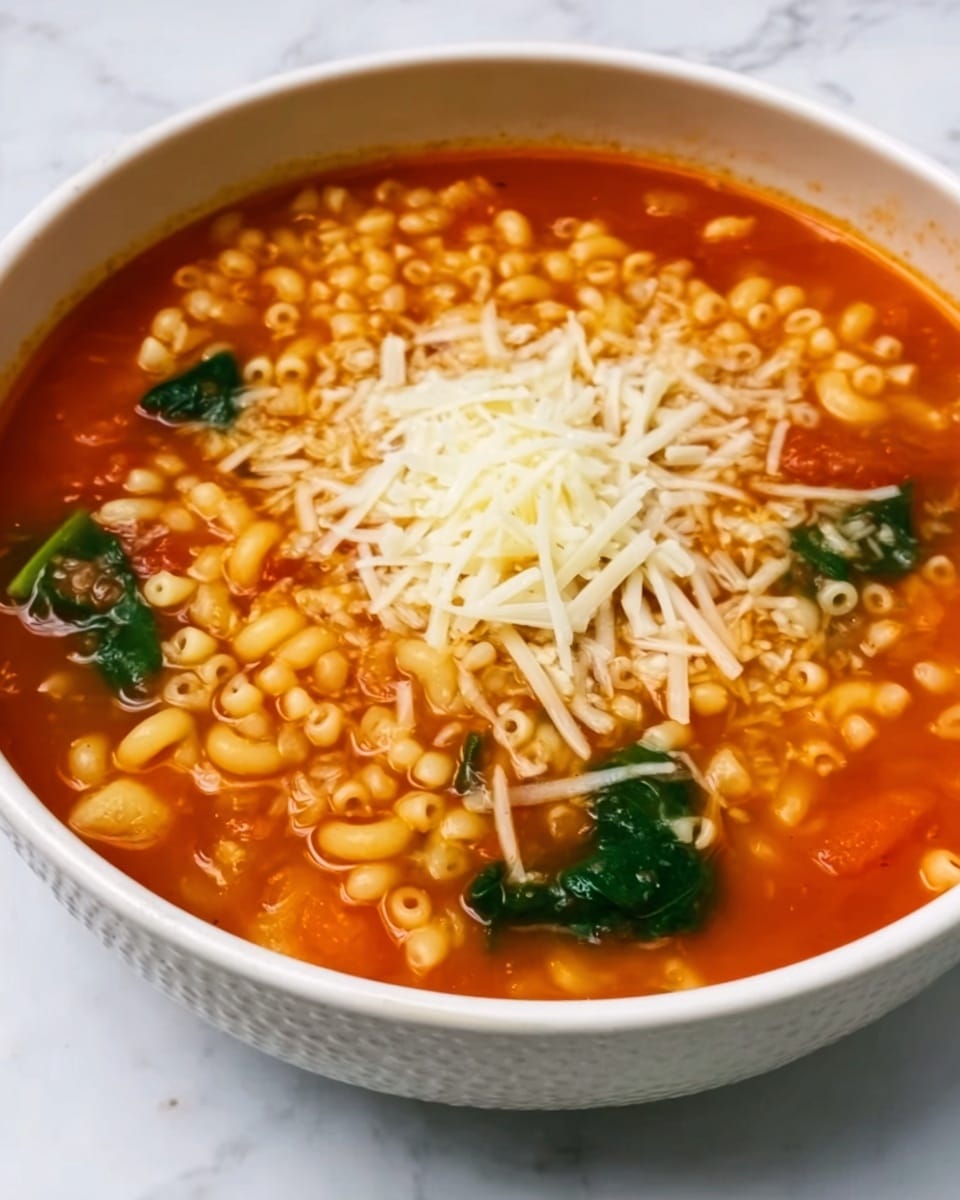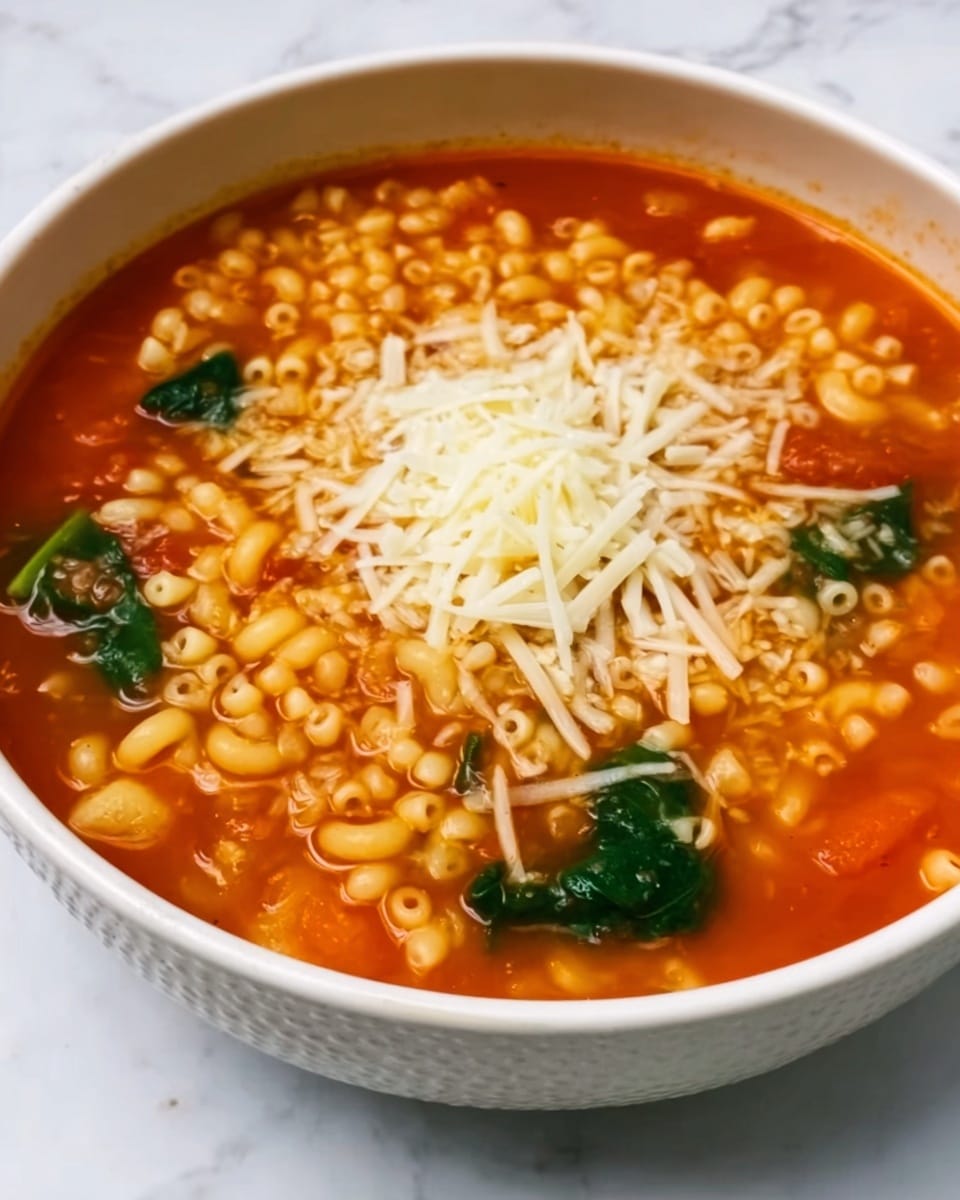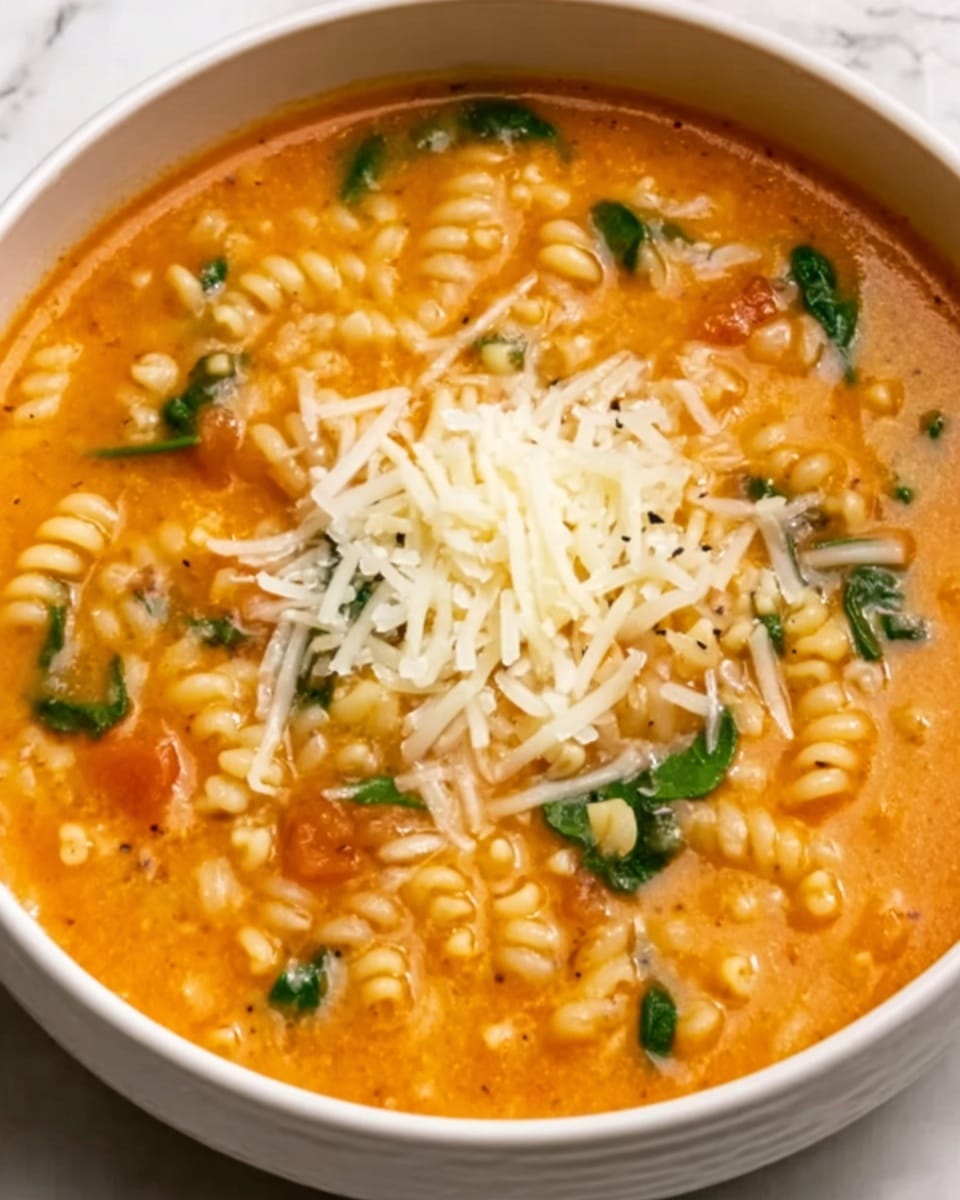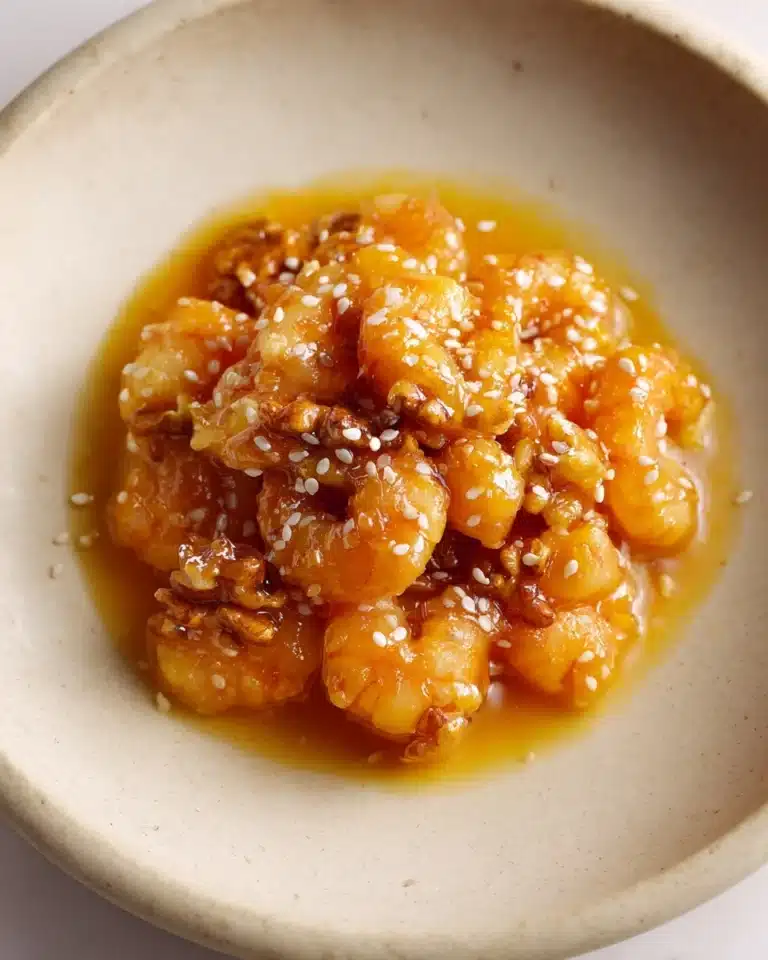If you’re looking for a comforting, soul-warming bowl of goodness that feels like a gentle hug on a chilly day, this Italian Pastina Soup Recipe is about to become your new best friend. With its delicate little star-shaped pasta swimming in a flavorful, velvety vegetable broth, it’s the perfect meal to soothe your spirit without any fuss. The magic lies in the simplicity: fresh vegetables, broth, and that charming pastina pasta that cooks up tender and slightly chewy. This recipe brings together warmth, heartiness, and a touch of Italian tradition in every spoonful, making it a go-to for busy weekdays or cozy weekend lunches.
Ingredients You’ll Need
Getting the flavor right in this Italian Pastina Soup Recipe is all about keeping the ingredients simple but high quality. Each one plays a crucial role—whether it’s the sweetness from the carrots, the aromatic depth from the onion and garlic, or the subtle richness that the parmesan rind lends to the broth.
- 1 cup pastina pasta (stelline shape or similar): This tiny pasta cooks quickly and adds the perfect comforting texture.
- 1 brown onion, roughly chopped: A foundational flavor builder that brings a gentle sweetness and savoriness.
- 2 carrots, roughly chopped: Adds natural sweetness and beautiful color to brighten the soup.
- 2 celery sticks, roughly chopped: Provides a subtle aromatic base that balances the broth.
- 4 garlic cloves, roughly chopped: Boosts the savory depth and gives a little gentle kick.
- 6 cups vegetable broth (or chicken broth, low-sodium preferred): The heart of the soup, delivering warmth and flavor.
- Salt and black pepper, to taste: Essential for seasoning and bringing all the flavors together.
- Optional: 1 bay leaf and 1 parmesan rind: These extras elevate the broth with layers of savory complexity.
- For Garnish (optional): Chopped parsley, grated parmesan cheese, drizzle of olive oil: Fresh garnishes that add brightness and richness to every bite.
How to Make Italian Pastina Soup Recipe
Step 1: Prepare Your Vegetables
Start by roughly chopping the onion, carrots, celery, and garlic. No need to be too precise—the aim is to release their flavors beautifully into the broth while cooking. This rustic chop helps create both texture and a depth of taste that sings through the soup.
Step 2: Simmer the Broth and Vegetables
In a large pot, pour in your vegetable broth and toss in the chopped vegetables, along with the bay leaf and parmesan rind if you’re using them. Season liberally with salt and black pepper. Cover the pot and let it simmer on medium-high heat for about 20 minutes. This gentle simmer allows the flavors to develop harmoniously, creating a rich, comforting base for the soup.
Step 3: Check and Strain
Once your vegetables are tender and easily pierced with a fork, it’s time to remove the bay leaf and parmesan rind. Use a slotted spoon or a colander to strain the cooked veggies out of the broth, preparing them for the next step of blending.
Step 4: Blend the Vegetables
Transfer those perfectly cooked veggies to a blender, add half a cup of water to keep things smooth, and blend until you get a silky texture. This blended vegetable mix is what transforms the broth into a luscious, creamy soup that feels indulgent, even though it’s naturally wholesome.
Step 5: Recombine and Season
Pour the blended veggies back into your pot with the strained broth, giving everything a good stir to combine. Taste the soup and feel free to adjust the seasoning with a little more salt and pepper if needed. This step ensures every spoonful carries perfectly balanced flavors.
Step 6: Cook the Pastina
Bring the soup back up to a gentle boil, then add your pastina pasta. Stir the soup every minute or so to stop the delicate pasta from settling and sticking at the bottom. Cook the pastina for 5 to 6 minutes until tender but still with a nice bite. The tiny stars soak up the broth’s flavor without losing their charm.
Step 7: Serve and Garnish
Once your pasta is perfectly cooked, ladle the soup into warm bowls. For a little extra love, top each serving with freshly chopped parsley, a generous sprinkle of grated parmesan cheese, and a drizzle of fruity olive oil. This finishing touch brings freshness and richness that makes the soup feel extra special.
How to Serve Italian Pastina Soup Recipe

Garnishes
Garnishing your Italian Pastina Soup Recipe isn’t just about making it look pretty—it’s a final flavor boost. Bright green parsley adds a fresh, herbaceous note, while the grated parmesan melts slightly into the warm soup, lending its savory richness. A drizzle of olive oil adds silkiness and depth that rounds everything out perfectly.
Side Dishes
This soup shines brightest when paired with simple, rustic sides. Crusty Italian bread or garlic breadsticks make for great dipping, soaking up every delicious drop. A crisp green salad dressed in lemon vinaigrette complements the soup’s comforting warmth, adding a fresh contrast.
Creative Ways to Present
For a family dinner or a cozy date night, serve the soup in adorable little ramekins for personal portions. You could also add a sprinkle of toasted pine nuts or a few drops of chili oil for a touch of excitement. Another fun idea is to float a tiny basil leaf on top to add a pop of color and herbal fragrance.
Make Ahead and Storage
Storing Leftovers
Leftover Italian Pastina Soup Recipe keeps beautifully in the fridge for up to 3 days. Store it in an airtight container to preserve freshness and prevent the flavors from mingling with other foods. Keep the pastina submerged in the broth to avoid dryness.
Freezing
If you want to freeze the soup, hold off on adding the pastina before freezing. Pastina can become mushy after thawing. Freeze the broth and blended vegetable base in a freezer-safe container for up to 2 months. When you’re ready to eat, thaw overnight in the fridge and cook fresh pastina pasta directly in the reheated soup.
Reheating
Reheat your soup gently on the stove over medium-low heat. Stir often to prevent the pastina from sticking or clumping. If it seems too thick, add a splash of water or broth to loosen it. Avoid microwaving for best texture, but if you do, reheat in short intervals stirring between.
FAQs
Can I use chicken broth instead of vegetable broth?
Absolutely! Using chicken broth adds a lovely depth and richness, but vegetable broth works perfectly for a lighter, vegetarian-friendly version.
What if I can’t find pastina pasta?
No worries! You can substitute with other tiny pasta shapes like orzo or tiny alphabet pasta. Just keep an eye on cooking times since sizes vary.
Is the parmesan rind necessary?
While optional, the parmesan rind adds an incredible savory umami note. If you skip it, just make sure to season the soup well for a rich flavor.
Can I make this soup vegan?
Yes! Use vegetable broth and skip the parmesan or use a vegan cheese alternative for garnish. The soup remains delicious and comforting either way.
How thick or thin is the final soup?
The Italian Pastina Soup Recipe has a smooth but slightly thickened texture thanks to the blended veggies, but it remains a broth-based soup rather than a creamy stew. It’s perfectly balanced for sipping spoonfuls of warmth.
Final Thoughts
This Italian Pastina Soup Recipe is one of those timeless dishes that feels like a warm embrace anytime you need it. It’s simple enough for everyday meals but special enough to bring a little Italian magic to your dining table. Give it a try—you’ll find it hard to resist going back for seconds of this cozy, heartwarming soup.
Print
Italian Pastina Soup Recipe
- Prep Time: 7 minutes
- Cook Time: 20 minutes simmering vegetables + 6 minutes cooking pasta = 26 minutes
- Total Time: 33 minutes
- Yield: 4 servings
- Category: Soup
- Method: Stovetop
- Cuisine: Italian
- Diet: Vegetarian
Description
A comforting and nourishing Italian Pastina Soup featuring a smooth vegetable broth blended with tender pastina pasta. This easy-to-make soup combines aromatic vegetables and subtle seasonings, perfect for a cozy meal.
Ingredients
Main Ingredients
- 1 cup pastina pasta (stelline shape or similar)
- 1 brown onion, roughly chopped
- 2 carrots, roughly chopped
- 2 celery sticks, roughly chopped
- 4 garlic cloves, roughly chopped
- 6 cups vegetable broth (or chicken broth, low-sodium preferred)
- Salt and black pepper, to taste
- Optional: 1 bay leaf
- Optional: 1 parmesan rind
For Garnish (optional)
- Chopped parsley
- Grated parmesan cheese
- Drizzle of olive oil
Instructions
- Prepare Vegetables: Roughly chop the onion, carrots, celery, and garlic cloves to prepare for boiling.
- Simmer Vegetables: In a large pot, pour the vegetable broth and add the chopped vegetables, bay leaf, and parmesan rind if using. Season with salt and black pepper. Cover the pot and simmer over medium-high heat for about 20 minutes until the vegetables are tender.
- Strain Vegetables: Check the vegetables for doneness with a fork; they should be soft and tender. Remove the bay leaf and parmesan rind. Use a slotted spoon or colander to strain out the vegetables from the broth.
- Blend Vegetables: Transfer the cooked vegetables to a blender, add ½ cup of water, and blend until smooth to create a creamy vegetable base.
- Combine Soup Base: Pour the blended vegetables back into the pot with the broth, stirring to combine. Taste and adjust seasoning as necessary with salt and pepper.
- Cook Pastina: Bring the soup to a boil and add the pastina pasta. Stir the soup every minute to prevent the pastina from sticking to the bottom of the pot. Cook for 5-6 minutes, or until the pasta is tender but not mushy.
- Serve and Garnish: Ladle the soup into bowls and garnish with chopped parsley, grated parmesan cheese, and a drizzle of olive oil, if desired. Serve warm and enjoy your comforting Italian Pastina Soup.
Notes
- To keep sodium low, use low-sodium broth and adjust salt according to taste.
- The parmesan rind adds depth of flavor but can be omitted for vegetarian versions.
- Pastina cooks quickly, so stir frequently to avoid sticking or clumping.
- For a vegan version, omit parmesan cheese and use only vegetable broth.
- This soup can be stored in the refrigerator for up to 3 days; reheat gently on stovetop.









